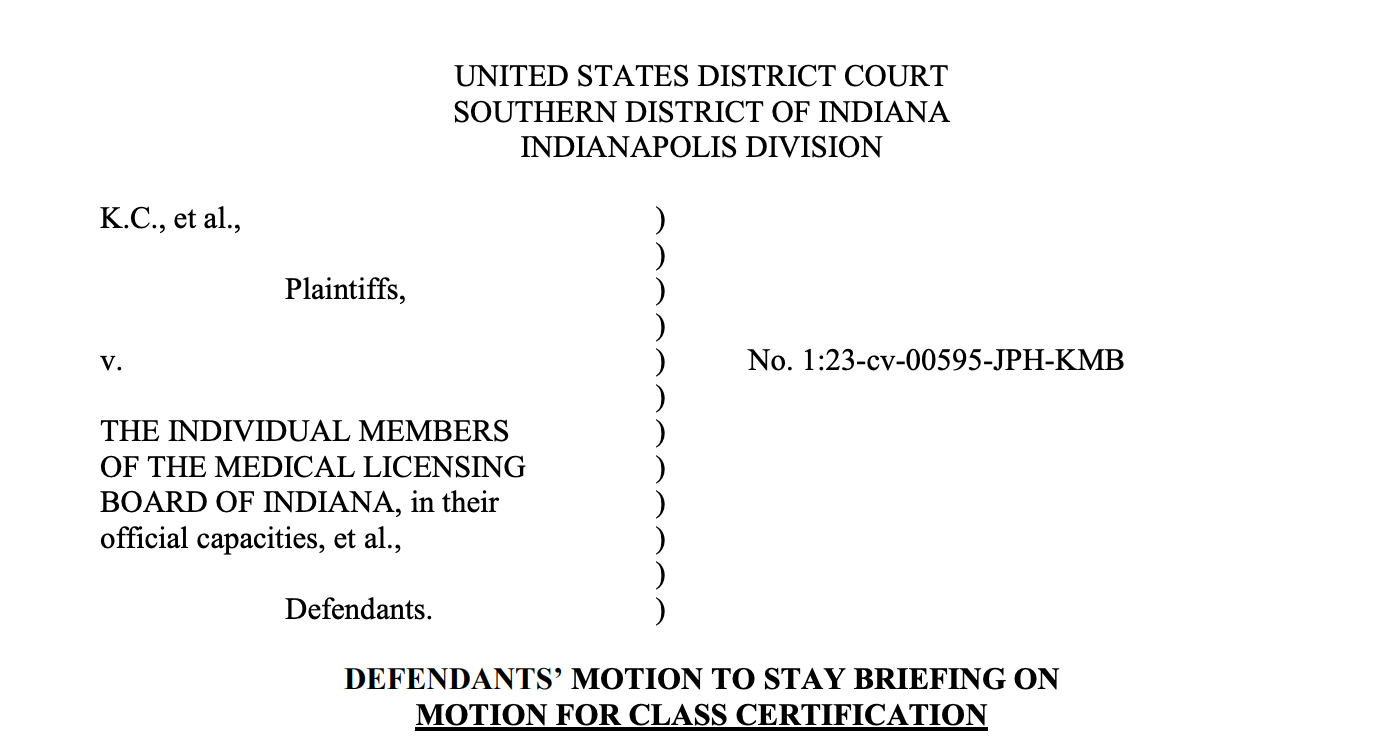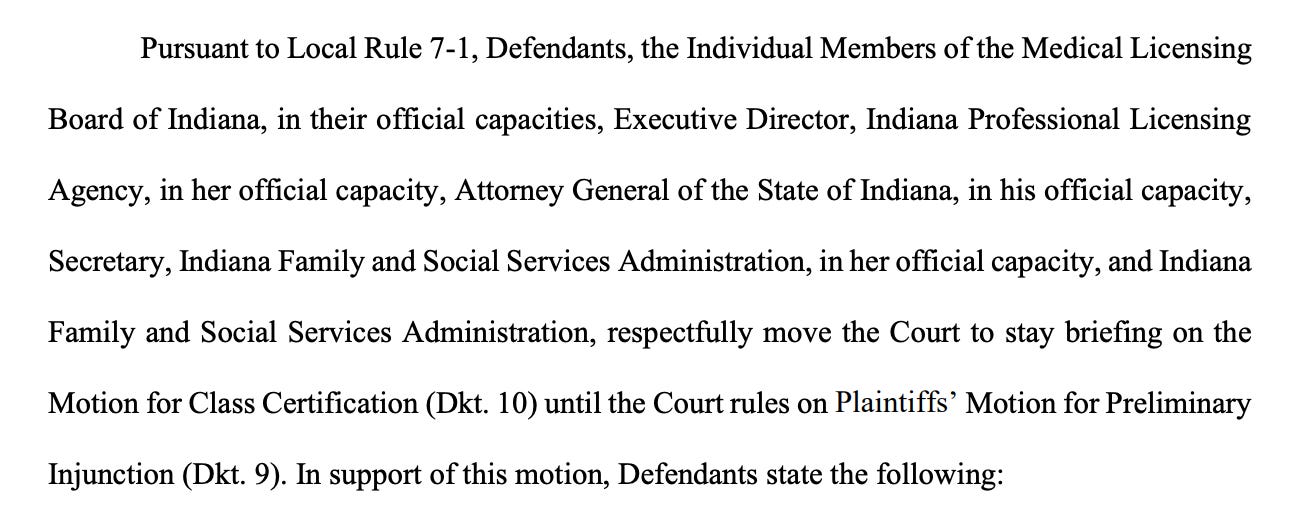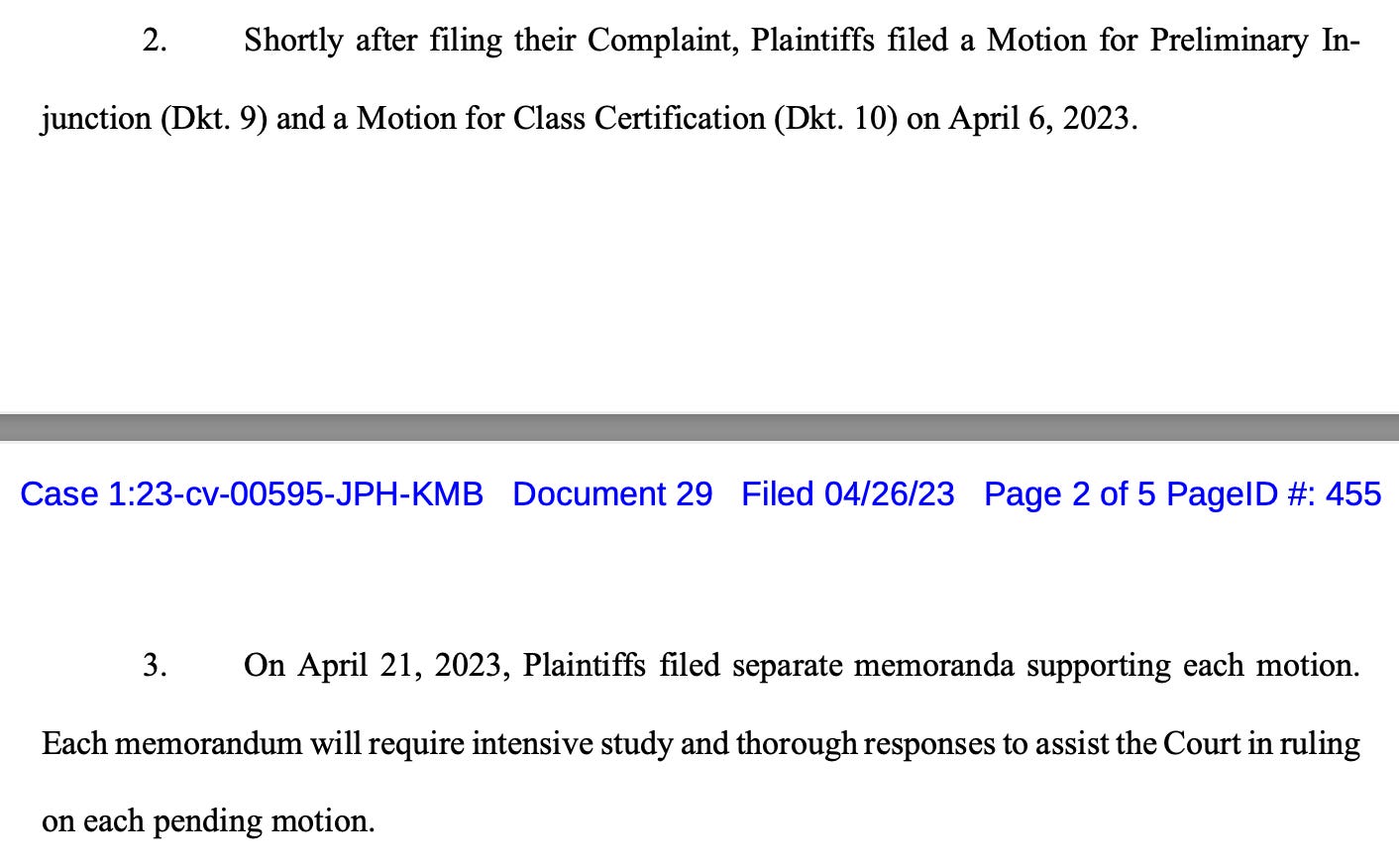Indiana lawyers say they're too busy to address all of the lawsuit challenging new anti-trans law
Indiana's ban on gender-affirming care for minors goes into effect July 1, but the state's lawyers told a federal judge the ACLU's lawsuit is too complex for them to deal with by then.
On Wednesday, lawyers for the state of Indiana actually argued in court that there is too much complicated legal work that they’ll need to do in order to respond to the legal questions raised by the challenge to the state’s new anti-transgender law before the law is set to go into effect so they would kindly just ask the court to put part of the challenge off until after the law goes into effect.
Really.
The state passed an extreme anti-trans law, S.B. 480, which bans gender-affirming medical care for minors going forward, orders a stop to such care currently being administered by Dec. 31, and includes punishment for anyone who “aids or abets” another medical professional in providing such care.
The state only delayed the effect of the new law as it applies to those currently receiving care; the law itself goes into effect July 1.
The state was, completely predictably, sued — by the ACLU of Indiana and the national ACLU.
The class-action lawsuit includes several proposed classes that include minors diagnosed with gender dysphoria who would otherwise seek to receive gender-affirming medical care, parents of such children, and medical professionals who would provide such care.
The challengers to the law have asked for a preliminary injunction and class certification — to protect everyone who might be affected and to do so before the law goes into effect.
On Wednesday, however, Indiana Attorney General Theodore Rokita and the lawyers in his office struck back — by arguing, in a motion to stay briefing (put it on hold) on the class certification motion, that this is all too much for them to handle right now.
Here is the legal jargon of the request:
If you read it quickly, with your eyes half-closed, it might seem like a reasonable request. Sometimes class-certification is deferred. But, remember, the state only chose to delay the implementation of one part of the new law — so the rest of it applies to everyone on July 1.
That means no minor could begin receiving gender-affirming medical care starting on July 1 if they aren’t already doing so before July 1.
It means the “aids or abets” provision is in effect as of July 1 and practitioners’ medical licenses could be in jeopardy if they even refer a patient to someone out of state for gender-affirming medical care.
But, that’s not what matters here, per Indiana’s lawyers. Here’s what those overwhelmed state lawyers have to say:
“Intensive study.”
They go on.
“Plaintiffs’ Memorandum in Support of Motion for Preliminary Injunction is 45 pages, briefs five distinct legal claims—each of which raises multiple sub-issues—and addresses three separate equitable factors,” they write. “Separately, Plaintiffs’ Memorandum of Law in Support of Plaintiffs’ Motion for Class Certification is 14 pages and is supported by 11 declarations totaling 38 pages.”
“Multiple sub-issues.”
They go on a bit more, but this is their bottom line:
For good measure, they also add that “the undersigned counsel have other deadlines and responsibilities,” listing out seven other cases that have matters pending.
Finally, and completely ignoring the rest of the law — and the lawsuit — the lawyers for Indiana write that, “while S.E.A. 480 goes into effect on July 1, 2023, the statute itself permits children currently undergoing ‘gender transition hormone therapy’ to continue such therapy until December 31, 2023.” Because of that “grace period,” they argue, that gives the court plenty of time “to address the class certification issue” later.
Then, they stick in an aside that completely undermines the rest of their motion: “And if any non-parties believe they cannot wait to see the result of class certification in this case, they always can file suit in their own right to seek preliminary relief.”
Let’s just step back a bit before I close this post about what is admittedly a complex procedural filing itself.
Here’s the big picture: The state of Indiana chose to pass an anti-trans law that the state of Indiana chose to have go into effect, for the most part, on July 1. The state of Indiana should, under no circumstances, be allowed to now claim it’s too much work to defend its law before people’s rights start being infringed on July 1.
The court gave the challengers until May 1 to respond to Wednesday’s motion, with any reply due by May 3.







Sounds like classic Rokita.
Vindictive, cruel, hateful creeps.